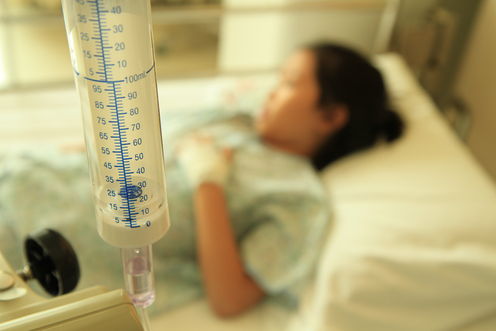
The diagnosis of a palliative illness in a child or adolescent is devastating for all involved: parents, family members and the children themselves, as they grieve for life they had planned and believed they would have. The child, their parents (and sometimes siblings) and clinicians will soon begin the difficult process of talking about death and the options for the child’s end-of-life care.
Advance care planning and advance health directives are useful tools to help manage the care of adults with palliative illness. They are designed to capture the future health-care wishes of an adult patient while they still have the legal capacity to make decisions for themselves, and record their choices.
When completed properly, the directives and plans are legally binding and come into effect when the patient no longer has capacity. Often they include choices around whether to pursue invasive life-sustaining measures such as mechanical ventilation, or when to withdraw fluid and nutrition. Recording these choices reassures those involved that death will occur with a personalised balance of ongoing treatment while avoiding futile measures and maintaining dignity.
The scenario is different for children with a palliative illness, as most have never had legal capacity and are reliant on parents (or others) to make health-care decisions for them. But this doesn’t mean that children and adolescents shouldn’t have a say in their future care, or have their choices acknowledged and recorded.
Children and adolescents can use informal or formal documented advance care plans, as well as other forms such as Paediatric Acute Resuscitation Plans (PARP). Although these forms are often not legally binding, the aim is to encourage early and thorough communication between parents and clinicians. And, where developmentally appropriate, conversations can also include the child.
Unlike advance care planning for adults, there remains little in the literature about their use and benefits for children. But we can make an educated guess.
Advance care planning in the paediatric setting ensures parents have time to consider the various health-care options, obtain relevant information, and prepare for the future decisions they may be asked to make. Parents of children with complex illnesses also say the process helps medical staff understand their child.
Children, like adults, are likely to benefit from being involved in the advance care planning process, and children as young as ten have shown capability in end-of-life planning similar to their adult counterparts. This is particularly so for adolescents, who by virtue of not having achieved an arbitrary legal “age of adulthood” may be otherwise denied from making or contributing to important decisions.
Many of the forms, such as the resuscitation plans, include a space to record information about discussions with the child or young person and any requests. This may take the form of expressing a wish to die at home or wanting to avoid painful procedures, as well as proactively wishing to ensure adequate pain relief will be provided.
Where children are involved in the process, differences between the level and types of interventions the parents want, and what the child is prepared to endure, might also be identified earlier and can then be negotiated and resolved. This aspect is particularly relevant to older children who deserve, ethically, to have a say in their care.
The death of a child is always complex and tragic, and in Western countries, is fortunately rare. However this should not leave us unprepared when a palliative diagnosis has been made. Advance care planning may provide important benefits to parents and children by helping guide the provision of care for a child when death is approaching.
This article was co-authored by Dr Christine Mott, Advanced Trainee in General Paediatrics and Palliative Care, the Royal Australasian College of Physicians.
Nikola Stepanov does not work for, consult to, own shares in or receive funding from any company or organisation that would benefit from this article, and has no relevant affiliations.
